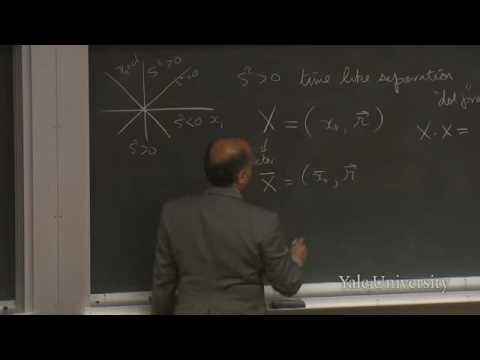The Royal Institution
Daniel C Dennett answers questions from the audience following his talk on cognitive science and the view of the brain as a computer.
Watch the talk here: https://youtu.be/TTFoJQSd48c
Subscribe for regular science videos: http://bit.ly/RiSubscRibe
The Ri is on Twitter: http://twitter.com/ri_science
and Facebook: http://www.facebook.com/royalinstitution
and Tumblr: http://ri-science.tumblr.com/
Our editorial policy: http://www.rigb.org/home/editorial-policy
Subscribe for the latest science videos: http://bit.ly/RiNewsletter
Source



anyone have a link to the microemotion writings Dennett coauthored?
Thank you for this great content.
God is the designer. That's the most reasonable explanation since information had to come from somewhere.
Just fantastic. Thank you RI & Thank you Daniel.
I thought it's pretty difficult to read and understand Wittgenstein but sometimes I do have the feeling that the ideas from Daniel Dennett are quite challenging as well in trying to get the bigger picture and the implications of approaching the brain like that especially regarding the memes. One very good lecture, thank you.
you in fact can turn off the college and throw them away. But emotions and/or repercussions/restraints help decide such isn't OK.
General Artificial Intelligence is not practically possible for the following 'deep and profound' reason: they must be either our tools or our colleagues and they can't be our colleagues if we can turn them off.
Why do you always leave so little time for questions? These are often salient constituents of the talkt itself.
what is a meme
words are memes, but not all memes are words, and neither memes nor words are constants – for example, the meme of "deep learning" has very little to do with the memes of either "deep" or "learning".
Interesting lecture with very little arguments for somewhat extraordinary claim that brains are computers. To my mind this sounds as yet another reductionist modern day analogy for a brain based on technology. Years ago it was oil and pumps and today it's a computer. Computers don't feel, they don't guess, they don't doubt and they don't have intention!!! Could this be just another effort to toss the consciousness out of the room?
Dennett is a smart man, and he will never give you a definitive answer.
I'd like to know what he means by singularity, is it just about computing?
My understanding of the singularity is, it is the culmination of the sciences feeding off each other.
Were our brains always designed to be conscious or is conscious an emergent property of the brain? Are all our higher mental functions emergent properties of our brain? At what point does something become conscious and who decides?
When people like Dennett say impossible, I think they mean "impossible in their lifetime", which for Dennett will probably be true.
he may be right, but his justification for why he felt the singularity would never happen was pretty pathetic
Let's provoke the topic to another level. Say, all (personal) computers, connected to the Internet or not resemble one big entity, not designed intelligently, but bottom up, through the users that buy and use them for their personal recreational or professional use. You say there is not such a thing as 'memes' competing for space in computers. But actually there are, through our brains. Be it a plethora of computers running the latest battle royale game, Bit-coin processing or algorithms searching the Internet to produce better search results and advertising. They compete for computing power and some of them also for brain space(attention) at the same time. Look at the steam store stats, of how many players are playing which game, look at streaming sites and find out how many people currently watch which stream or recorded Video. Then go on and think about how (designed) algorithms try to (and often do) dictate what game to buy next, what video to be interesting to you.
I propose: If there would be any sort of compete-able artificial intelligence, then it might be a mixture of both human mind and digital computing, evolving together as i write this. A picturesque analogy could be, say, the computer is the neuron and the human the emotion (neurotransmitter?).
Given that the point of his whole talk was based on the fact that Brains are like computers, how could he conclude that we won't be able to make one inside a computer? And once we are able to make it, why can't it evolve through the same methods that we evolved, and if it does evolve, why can't it evolve to superhuman levels with sufficient resources? My point being, that his own logic suggests that singularity is not only possible but imminent. And his reasoning against singularity is really unconvincing. He said, "they must be either our tools or our colleagues and they can't be our colleagues if we can turn them off." Uh, so what? That doesn't explain one bit why the idea is "balderdash".